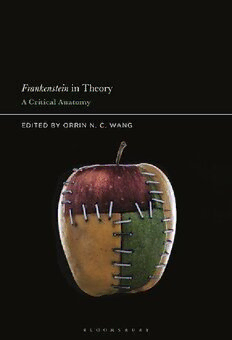
Frankenstein in Theory: A Critical Anatomy PDF
273 Pages·2021·2.68 MB·English
Most books are stored in the elastic cloud where traffic is expensive. For this reason, we have a limit on daily download.
Preview Frankenstein in Theory: A Critical Anatomy
Description:
This collection provides new readings of Frankenstein from a myriad of established and burgeoning theoretical vantages including narrative theory, cognitive and affect theory, the new materialism, media theory, critical race theory, queer and gender studies, deconstruction, psychoanalysis, and others. Demonstrating how the literary power of Frankenstein rests on its ability to theorize questions of mind, self, language, matter, and the socio-historic that also drive these critical approaches, this volume illustrates the ongoing intellectual richness found both in Mary Shelley’s work and contemporary ways of thinking about it.
See more
The list of books you might like
Most books are stored in the elastic cloud where traffic is expensive. For this reason, we have a limit on daily download.
